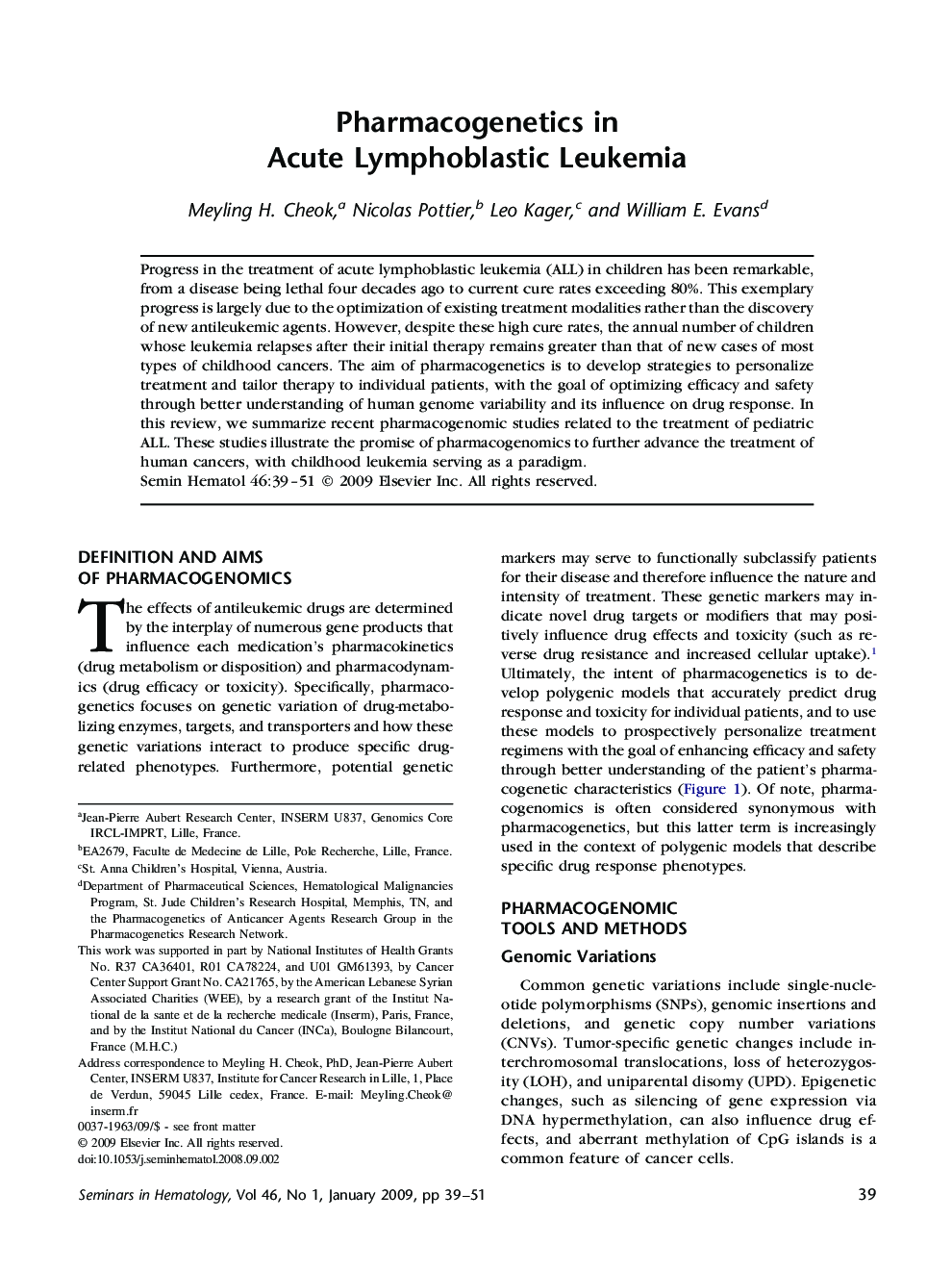| Article ID | Journal | Published Year | Pages | File Type |
|---|---|---|---|---|
| 3333949 | Seminars in Hematology | 2009 | 13 Pages |
Progress in the treatment of acute lymphoblastic leukemia (ALL) in children has been remarkable, from a disease being lethal four decades ago to current cure rates exceeding 80%. This exemplary progress is largely due to the optimization of existing treatment modalities rather than the discovery of new antileukemic agents. However, despite these high cure rates, the annual number of children whose leukemia relapses after their initial therapy remains greater than that of new cases of most types of childhood cancers. The aim of pharmacogenetics is to develop strategies to personalize treatment and tailor therapy to individual patients, with the goal of optimizing efficacy and safety through better understanding of human genome variability and its influence on drug response. In this review, we summarize recent pharmacogenomic studies related to the treatment of pediatric ALL. These studies illustrate the promise of pharmacogenomics to further advance the treatment of human cancers, with childhood leukemia serving as a paradigm.
